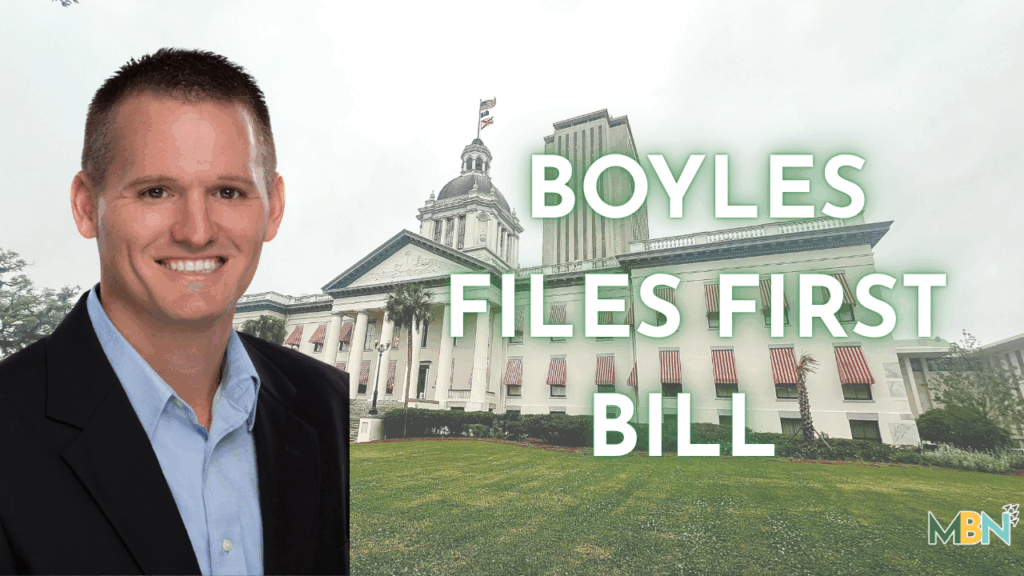
☀️ Counties could set rules and require bonds for dismantling idle solar farms
⚡ Utilities must prove storm-hardening benefits outweigh costs
🏛️ DEP to create and update statewide solar-construction standards annually
CRESTVIEW — A proposal by State Rep. Nathan Boyles (R-Baker) would expand county authority over solar farms and tighten state rules for utility storm protection plans under a sweeping utilities measure filed for the 2026 legislative session.
House Bill 193 (H.B. 193) amends sections of Florida law governing both renewable energy and electric utility infrastructure. It would allow counties to adopt ordinances establishing requirements for decommissioning solar facilities once they reach the end of their useful life.
Florida Sen. Jennifer Bradley (R-Fleming Island) filed a companion resolution in the state senate, known as Senate Bill 200, and was cosponsored by State Sen. Don Gaetz (R-Niceville).
With the proposed legislation, counties could mandate that facilities with a generating capacity of one megawatt or more be dismantled within 24 months after notice that they have ceased operation, with owners required to restore the land to agricultural use.
The bill defines when a solar facility is considered nonfunctional or abandoned—such as when it fails to produce electricity for 12 months or when construction halts for two years—and allows operators to rebut those findings by submitting plans and assurances of continued work.
To ensure decommissioning costs are covered, counties could require financial assurances from facility owners in the form of bonds, letters of credit, parent company guarantees or other approved financial instruments. If an owner fails to complete the decommissioning, the county would have the authority to step in, complete the work, and claim the provided financial assurance.
Counties must allow at least 12 months to begin and 24 months to finish the process before intervening.
The measure also directs the Florida Department of Environmental Protection to develop best management practices (BMPs) for constructing solar facilities. The BMPs would include requirements for percolation testing, stormwater runoff management, and design standards capable of withstanding a 100-year storm event.
The department would have to review and update the BMPs annually by examining civil case settlements, consent decrees, and judgments related to solar construction since 2020. All solar facility operators would be required to follow these BMPs.
In a separate section, HB 193 revises Florida’s utility storm protection cost recovery law. It mandates that all improvements proposed in a transmission and distribution storm protection plan must have forecasted customer benefits that exceed their forecasted costs.
The Public Service Commission would be required to consider factors such as outage reduction, restoration cost savings, reliability improvements, and rate impacts when reviewing those plans.
The bill deletes outdated language from previous statutes and requires the Public Service Commission to propose new rules implementing the changes by Oct. 31, 2026.
If passed, the act would take effect July 1, 2026.
Register or login with Mid Bay News and never get another pop up on our site!